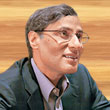“go figure”
2020/11/03 04:12:58 網誌分類: 生活
Last week, Secretary for Commerce and Economic Development, Edward Yau Tang-wah, mixed up a common English proverb. Over the years I have heard many government officials and politicians make mistakes when using idioms or proverbs. This is understandable because English is not their first language. I point out these mistakes whenever I can so we can all learn from the mistakes. Yau Tang-wah was talking about travel bubbles and local tours when he made the mistake. The expression “travel bubble” is a new expression created because of the coronavirus. It means two places that allow two-way travel without passengers having to quarantine because the coronavirus is under control.
When Yau Tang-wah was talking about local tours and other events, he said “where there’s a way, there’s a will”. He got the expression the other way round. It should be “where there’s a will, there’s a way”. This expression means if you are determined about doing something, you can succeed even if what you want to do is very difficult. It is very difficult to give up smoking. But if you are determined or have the will to do it, you will find a way to succeed. What Yau Tang-wah meant was if Hong Kong people are determined to fight the coronavirus and re-open the economy, they will find a way to succeed.
*****
母語是英語的人,很少會混淆了常用的成語和諺語。但英語並非大部份香港人的母語,因此他們有時會搞亂了一些常用的成語和習語。有一些美式俚語說法,即使是其他英語國家的人,也不大明白。一個很好的例子是俚語“go figure”,它在美國很常用到。當美國人要跟人說一個事實,卻感到那個事實非常令人吃驚或荒誕的時候,就會用到這個俚語。譬如,若一間非常昂貴的餐廳,食物淡而無味,廚房還有老鼠,那間餐廳卻總是滿座的,你便可以說“go figure”。
上星期,商務及經濟發展局局長邱騰華就混淆了一個常用的英文諺語。過去多年來,我聽過有許多政府官員和政客,用成語或諺語的時候說錯了。這是可以理解的,因為英語並非他們的母語。可以的話我都會指出這些錯誤,是為了讓我們大家都可以從這些錯誤中學習。邱騰華當時正在講解旅遊氣泡(travel bubble)和本地旅遊團,就犯了一個習語上的錯誤。習語“travel bubble”是因為新冠肺炎疫情而衍生出的新詞,意即兩個地區因為疫情已受控,可容許雙向的通行往返,而乘客不必隔離檢疫。
當邱騰華在講述本地團和其他活動時,他說:“where there’s a way, there’s a will”;但他把習語的語句顛倒了。正確的習語應是:“where there’s a will, there’s a way”。這個習語的意思是,即使你想做的事困難重重,只要下定決心去做,你也可以成功。要戒煙是很困難的,但若你夠堅決,或有足夠的意志要去戒煙,那你一定會找到方法成功的。邱騰華的意思是,若香港人都能決心對抗新冠肺炎疫情,重啟經濟,總能找到方法成功的。
mickchug@gmail.com 中譯:七刻
Michael Chugani 褚簡寧
回應 (0)
我要發表

